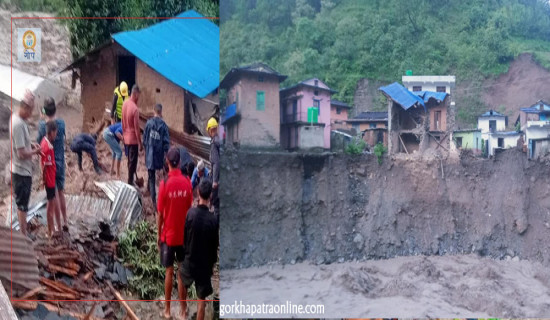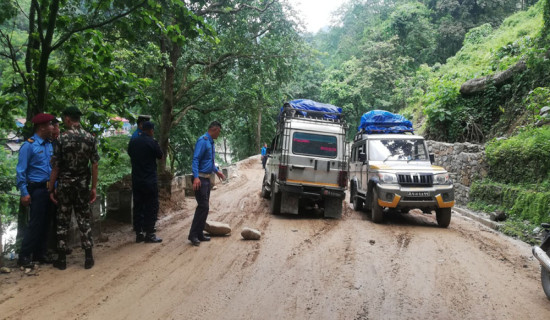- Tuesday, 16 July 2024
Oli's Fourth Innings
CPN-UML chairman KP Sharma Oli has become Prime Minister of Nepal for the fourth time. President Ramchandra Paudel appointed him to the highest executive post on Sunday as per Article 76 (2) of the Constitution of Nepal. Oli, who was elected to a member of House of Representatives (HR) from Jhapa-5, has garnered the support of 166 lawmakers to stake a claim to the post. President Paudel also administered the oath of office and secrecy to him as the Prime Minister on Monday. Oli, 72, is back at the helm after his party decided to join hands with the Nepali Congress, the largest party in the parliament, by pulling out support to the Pushpa Kamal Dahal Prachanda-led government. In addition to NC, other small political parties have also extended their backing to the new government, enabling it to command around two-thirds majority in the HR.
Oli's election to the premiership has taken place with the dramatic twist of events. The UML and NC came to a common ground after former prime minister Prachanda changed alliances time and again for the political expediency. Following the federal election in November 2022, Prachanda, chairman of the third largest party CPN-Maoist Centre, formed the government with the support of UML though he contested polls forging an alliance with the NC. He again switched to the NC, breaking alliance with the UML. As the NC-Maoist Centre partnership hit roadblocks, Prachanda allied with the UML. This sort of shifting alliances has negative implications for the stability, good governance and policy consistency. As the larger parties were forced to play second fiddle to the third force, many raised concerns about the efficacy and functionality of federal democratic republic.
The mixed electoral system is largely attributed to the creation of a hung parliament, precluding any single party from constituting a majority government. The nation needs a strong and predictable government capable of resolving burning social and economic problems. In their informal agreement, the NC and UML have reportedly decided to amend constitution with regard to the electoral system to ensure political stability. Though this is not the first time that NC and UML have entered an alliance, the current one will be seen as a new experiment as it has taken place for the first time after the new national charter came into force. Their coalition is expected to go beyond mere power-sharing in the government and bring transformative changes in the society.
On the day of oath-taking, the newly appointed Prime Minister Oli also formed a 22-member Cabinet comprising two Deputy Prime Ministers, and ministers from four political parties - UML, NC, Janata Samajbadi Party and Loktantrik Samajabadi Party. The new Cabinet consists of members from diverse political backgrounds. PM Oli is himself a seasoned politician who spent 14 years in prison in course of fighting for democracy, civil liberties and social justice. He has become the country's first communist leader to take the mantle of premiership for the fourth time. Oli was first appointed the PM in October 2015 following the promulgation of the constitution.
With strong backing to his administration, PM Oli is in a position to pursue bold economic reforms and effective and balanced foreign policy. The UML and NC need to chart out joint action plan to bring about immediate changes to the life of ordinary people hit hard by inflation, unemployment, corruption and poverty. Moreover, the political allies should build trust with each other so that they will smoothly steer the nation on the path of democratic order and prosperity.










-original-thumb.jpg)






